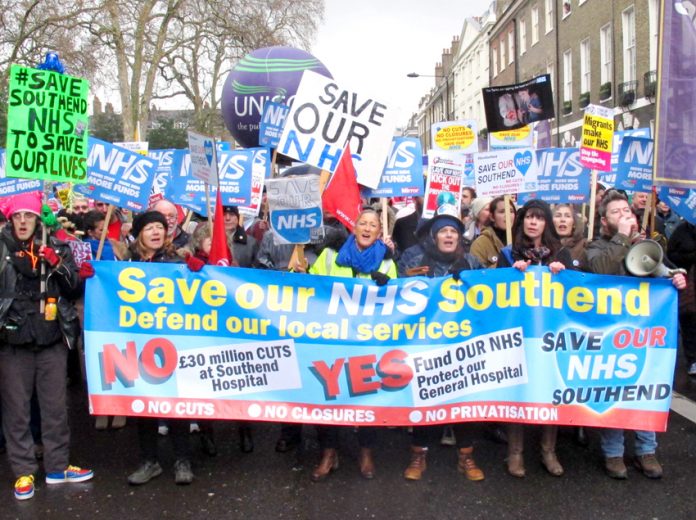DOCTORS’ leader Chaand Nagpaul is today warning of an ‘all year’ crisis in the NHS as eight in ten doctors say underfunding is significantly affecting quality and safety in the health service.
In his keynote address to the BMA’s Annual Representative Meeting in Brighton this morning, Dr Chaand Nagpaul, the BMA Council Chair will point out that pressure on services in the summer are as bad as those in the winter and with little sign that the Prime Minister’s recent announcement on NHS funding will solve the immediate problems facing patient care. His comments came as interim findings from a major new British Medical Association (BMA) survey of 8,000 doctors in the UK found almost three-quarters felt that financial targets are prioritised over patient care in the NHS.
Key findings from the survey include: • Almost three-quarters (74 per cent) of doctors say that financial targets override patient care. • Eight in ten (78 per cent) say that underfunding is significantly affecting quality and safety in the NHS.
• Almost all doctors (95 per cent) said they were fearful of making a medical error and more than half (55 per cent) fear they will be blamed for errors due to pressures or system failings in their workplace. • Most doctors say waiting times for patients (76 per cent) and NHS services overall (76 per cent) have worsened in the last 12 months. • Only one in twenty (5 per cent) say staffing levels are adequate to support quality patient care.
• Three quarters (74 per cent) say staffing levels have worsened of the past 12 months. • When asked what would improve day-to-day life safety was key; staff levels (57 per cent) and more effective IT systems (53 per cent).
Dr Nagpaul will say: ‘We know the NHS has been systematically and scandalously starved of resources for years. It lacks doctors, it lacks nurses, it lacks beds. ‘It’s not just the channel that separates us from our European neighbours, but a vast funding gap equating to 35,000 hospital beds or 10,000 doctors.
‘We’re being run ragged. A health service of gaps and stopgaps where two out of three juniors report holes in their rota and one third of GP practices have long-term vacancies. It’s the new norm. It’s a new low.
‘Does being prepared mean resorting to precipitously cancelling tens of thousands of operations before Christmas due to lack of capacity, adding further delay, anxiety and suffering to patients who’ve already waited months for an operation? Is being prepared having 17,000 acutely sick patients queuing in ambulances outside emergency departments in the first week of January since there was not the space to admit them.
‘Do you remember when winter pressures only happened in the winter? We now have an all-year crisis. Today in Brighton we may be in the midst of summer, but in the NHS it’s still winter. ‘All this is inevitably affecting patient safety, with bed occupancy in some trusts running up to 100% – well above recommended safe limits of 85%.
‘Is it safe for patients who should be admitted in an emergency to suffer ambulance delays of several hours with some not surviving the wait as reported last winter? ‘Is it safe to work in an understaffed environment of perpetual rota gaps? Is it safe to manage patients in car parks because the hospital has no space, or to treat patients on trolleys in corridors rather than the facilities of a ward? Is it safe for GPs to spend just ten minutes with patients with four or more complex problems?’
‘Five years on, three-quarters of doctors say that financial targets still override patient care, while the board agendas of NHS organisations across the UK remain obsessed with balancing unbalanceable books, when what they should be obsessed about is quality and safety.’
Responding to the Prime Minister’s recent funding announcement, Dr Nagpaul will say: ‘Given the taxpayer is being asked to contribute more, the government has an equal moral imperative to stop wasting billions from current taxpayers pockets on the damaging NHS market in England – money which should be used to treat patients but is being squandered in futile transactions, bureaucratic processes, fragmentation and PFI deals. . .‘What more evidence does the government need about the costs and damage of private outsourcing after the collapse of Carillion, and the utter shameful incompetence of Capita?’
